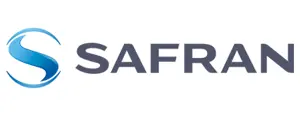Safran
R&D validates viability of low cost resin infusion for aerospace parts manufacture
Background
Safran is an international high-technology group, operating in the aviation (propulsion, equipment and interiors), defense and space markets. Its core purpose is to contribute to a safer, more sustainable world, where air transport is more environmentally friendly, comfortable and accessible.
Safran has a global presence, with 92,000 employees and sales of 23.2 billion euros in 2023, and holds, alone or in partnership, world or regional leadership positions in its core markets. Safran undertakes research and development programs to maintain the environmental priorities of its R&T and innovation roadmap.
Challenge
Safran had instigated an industrial research programme (code named ‘Propound’) with funding from the UK Government’s Innovate UK body. The aim of the programme was to test and validate the viability of the resin infusion against the existing autoclave pre-preg methods for aerospace parts manufacture.
Materials testing and validation would be conducted by University of Nottingham. Safran invited Composite Integration to join the programme as a partner to answer the following questions:
- Is resin infusion a viable, sustainable alternative to pre-preg in aerospace manufacturing?
- Can the resin infusion process be used to produce parts to stringent Aerospace structural integrity and safety specifications?
- Can resin infusion reduce costs, production timeframes and wastage?
Solution
Working collaboratively with Safran and University of Nottingham, our CI experts:
- Reviewed Safran’s pre-preg specifications & project KPIs.
- Analysed Safran’s design and tooling.
- Developed a resin infusion a methodology and process to produce a fan cowl door as a proof of concept.
- Specified and built a resin infusion machine with end-to-end data monitoring systems, specifically developed for Aerospace manufacturing.
- Produced 3 demonstrators and collaborated with the University of Nottingham in the test and validation process.
- Published the research results.
Results
In the first phase of the Propound project, the University of Nottingham validated that the infused demonstrators were of exceptional quality
- Produced the cowl door parts to the same specifications as the pre-preg process, whilst reducing their weight.
- Reduced the cost of production by 25%.
- Produced parts with high-fibre fractions and no detectable porosity.
First phase results were published in 2023.
We are now collaborating with Safran on phase 2, to refine the demonstrator process and equipment in readiness for production, and to integrate the aerospace quality resin infusion technique into other areas of the business.
“CI were the natural choice as partners for this project. Their pioneering expertise and CIJECT machinery helped us validate RTM as a viable process for quality aerospace parts manufacture.. We look forward to their continuing support as we move towards full production”

